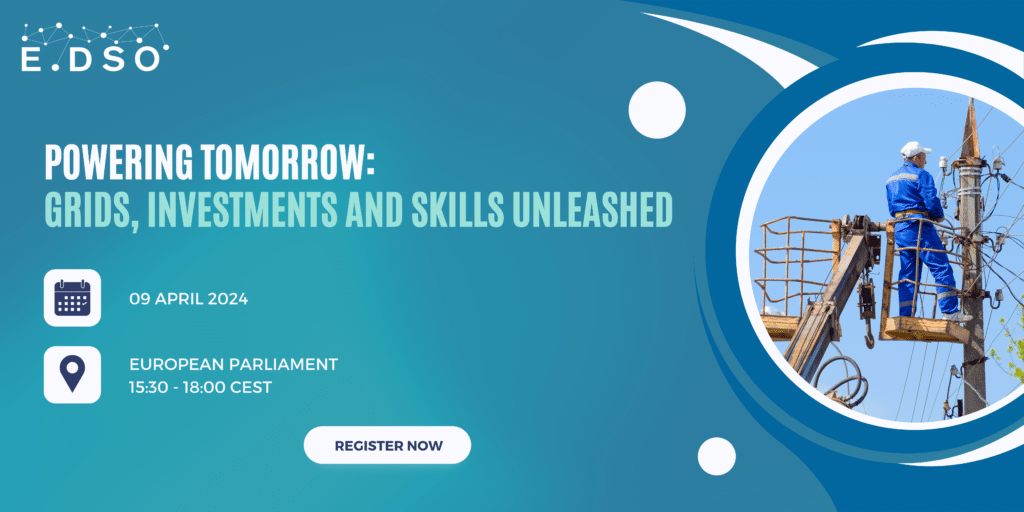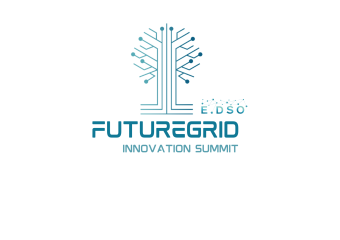On April 9, 2024, the European Parliament in Brussels served as the stage for the “Powering Tomorrow: Grids, Investments, and Skills Unleashed” event organised by E.DSO in collaboration with Greens MEP Ciaran Cuffe’s office.
The event featured a diverse lineup of speakers, each bringing unique perspectives that enriched the discussion on the topic: Rémy Garaude-Verdier of Enedis, Mario Turisi from A2A, and Richard Vidlička of ČEZ, Distribuce, along with Barbara Diz from the European Commission’s DG ENER, John Sinner representing the European Investment Bank, and Niels Fuglsang, MEP with the Socialists and Democrats.
The discussions that were put forward revolved around the future of grid investments, the role of DSOs, and the financing mechanisms required to support the energy transition. The event managed to forge a vision that accentuates critical investments in grid infrastructure and emphasised the need for both skilling and upskilling of the energy workforce. Moreover, ideas about the strategic investments (both public and private) needed for a resilient and efficient distribution grid were presented.
In his Keynote Speech, Richard Vidlička, E.DSO Board member, identified three main challenges affecting the future of grids. These include supply chain challenges, staff shortages which lead to lack of skills, and DSOs not being able to achieve energy transition targets due to lengthy permitting procedures. Vidlička considered the enhancement of financial and funding mechanisms to support grid expansion as essential vectors for this transition together with the drafting of a common approach to accelerate permitting and investment processes.
Following a presentation regarding E.DSO’s main priorities by E.DSO Secretary General Charles Esser, a panel discussion moderated by Tzeni Varfi, Deputy Secretary General at E.DSO, sparked a vibrant exchange on policy and regulatory changes impacting distribution grids, offering a preview of the legislative developments anticipated in the upcoming term.
The debate highlighted several key takeaways as DSOs grapple with a daunting backlog of approximately 3,000 GW of renewable projects awaiting grid connection. Current regulatory frameworks permit grid expansion only after a formal connection request, a stance increasingly viewed as inadequate considering Europe’s aggressive decarbonisation target. These include an ambitious objective to boost electrification to 50% of total energy consumption by 2040. Such policies risk substantial delays in integrating Renewable Energy Sources (RES), which are essential for meeting electricity demands.
The solution lies in shifting towards anticipatory investments, a strategy endorsed by the EU’s electricity market reform and Action Plan for Grids. Implementing the anticipatory investments requires immediate action to incorporate these strategies into national policies, ensuring that Europe’s grid infrastructure can support the green transition efficiently and sustainably.
Thanks to all of our speakers for their insightful contributions and the attendees for their engaging presence!







